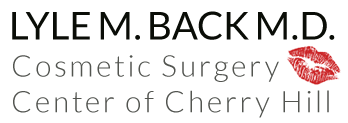Why Look for a “Board Certified Plastic Surgeon”?
A disturbing reality – there are physicians claiming to be “Plastic Surgeons” but who are not. They advertise and promote themselves well, but are they as well-trained and properly certified as you would expect? Plastic Surgeons, the real ones, are certified by the American Board of Plastic Surgery (ABPS Certified). They are uniquely qualified and specially trained according to very specific standards. The ABPS is the only officially recognized Plastic Surgery Board overseen by the American Board of Medical Specialties (ABMS), the pre-eminent entity which governs the board certification process of every physician specialist throughout the U.S. The ABMS sets the high standards which must be met in education, training and proficiency for all the certifying boards such Orthopedic Surgery, Neurosurgery, Cardiothoracic Surgery and Plastic Surgery.
But not all physicians offering Plastic Surgery or Cosmetic Surgery services are actually ABPS Certified! Research your doctor’s credentials carefully. Don’t be fooled by professional sounding “qualifications” and similar sounding designations. A Plastic Surgeon certified by the American Board of Plastic Surgery (ABPS) is specifically Board Certified as a Plastic Surgeon specialist and has successfully met the following ABPS minimum requirements:
1. Completed a recognized college educational program with a BS or BA degree and high GPA.
2. Completed a post-graduate medical education program (typically 4 years) at an approved and fully accredited medical school, and earned a medical degree.
3. Completed 3 or more years (typically 5 years) of General Surgery training in an approved and fully accredited surgical residency training program.
4. Completed 2 or more years (typically 3 years) of Plastic Surgery specialty training in an approved and fully accredited Plastic Surgery residency program.
5. Passed all the necessary components of a rigorous, full day ABPS written examination.
6. Completed at least 2 years of professional practice as an independent Plastic Surgeon following all residency training.
7. Submitted case histories, including (by permission) before and after photographs to ABPS for official analysis and review.
8. Passed all the necessary components of a rigorous, full day ABPS oral examination; only about 70% of those taking the exams pass.
9. Maintain professional standards of ethics, conduct, and professionalism in practice, with yearly submission of verification of continuing medical education.
